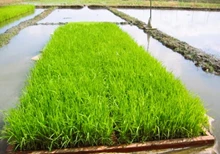
After a series of dismissals, India has finally scrapped the royalties that local companies used to pay to German drug manufacturing company Bayer AG. The local cotton seed companies in India used to pay royalties to Monsanto, a former American agrochemical and agricultural biotechnology corporation which was acquired by Bayer in the year 2018. These royalties were paid by the companies for genetically modified (GM) cotton that has a gene producing its pesticide. The news has been confirmed by government order.
Before its acquisition in a $63 billion, Monsanto was headquartered in St. Louis. Before the final dismissal happened, India had already started reducing the royalties that triggered a long-running conflict. Even the U.S. ambassador to India at the time, Richard Verma, has approached the Indian Prime Minister several times but India kept lowering the royalties.
After reducing the royalties paid by Indian seed companies to Monsanto unit by 49%, now the Ministry of Agriculture and Farmers’ Welfare terminated the royalty altogether, which may leave the company in distress.

According to reports, a Bayer spokesman commenting on the dismissal said, "While it is disappointing to see the full elimination of trait fees, we will, in collaboration with other technology providers, continue to highlight the need to maintain a reasonable level of trait fees".
Monsanto's GM cotton seeds were considered a boon to the Indian cotton industry as it was the only lab-altered crop allowed in India and provided an upgraded variety that helped transform the cotton industry of the nation. India is one of the world's top producers of cotton and the second-largest exporter in the world.
Although the company had such a good reputation, Monsanto faced a dispute with Indian seed company Nuziveedu Seeds Ltd (NSL), which argued that India's Patent Act did not allow Monsanto any patent cover for its GM cotton. Both companies are still engaged in legal proceedings and cases.










